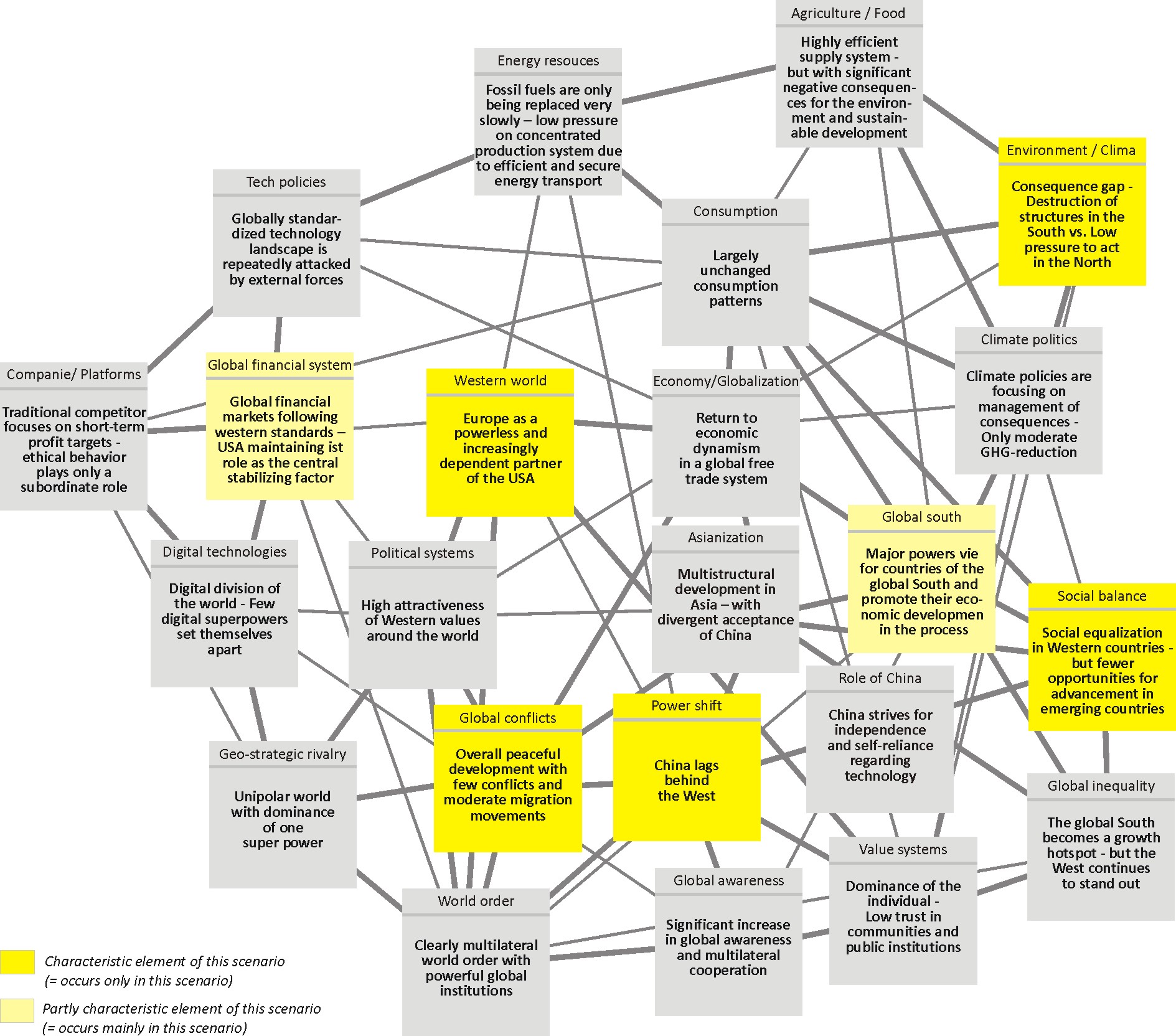US rules
Deceptive comfort under the Western umbrella
- Multilateral world with the USA as the sole and ultimately defining superpower (unipolarity)
- Economic development of China stagnates – other countries of the global south as new growth hotspots
- Social equalization in Western countries – but fewer opportunities for advancement in emerging countries
- Largely unchanged consumption patterns – Consequence gap with destruction of structures in parts of the South vs. low pressure to act in the North
- Technological leadership of the West remains
After a phase of internal conflict and hesitance, “the West” is back on the international stage. The increasingly global consciousness of people all over the world is characterized by the pursuit of civil and human rights, values such as individual freedom, law and tolerance, and the idea of liberal democracy. Under the de facto leadership of the United States as the sole and ultimately decisive superpower, the multilaterally shaped world order has been strengthened. Europe remains a subordinate partner of the United States.
China‘s rise as an economic world power massively slowed down during the 2020s. In particular, the global culture of innovation that was increasingly forming around liberal values was no longer compatible with the authoritarian paradigm. Like other totalitarian states, China struggled to open up economically, but it remained inferior to liberal societies. China‘s Asian neighbors benefit from this development and new economic hotspots emerge in the global South, many of which are oriented towards Western development patterns.
The dynamic global economy is characterized by a free trade system and the continuation of the existing U.S.-dominated global financial system. Technological development follows global standards, which are shaped by a few digital superpowers – above all the tech giants of the USA. Following traditional structures, companies continue to act on the basis of short-term profit targets while ethical behavior plays only a subordinate role. This also applies to the agricultural and food industries, which are highly cost-efficient but accept negative consequences for the environment.
With the restructuring of their industrial societies, the democracies of the North have succeeded in organizing broad participation in economic development for their inhabitants while consumption patterns remain largely unchanged.
In the case of climate change there is a global divide as well. Highly developed northern states feel little pressure to act and concentrate on mitigating the consequences, while many developing countries suffer more severe consequences, up to the destruction of public and economic structures. In this respect, the largely peaceful global development stands on feet of clay, and migration is a central issue worldwide.




